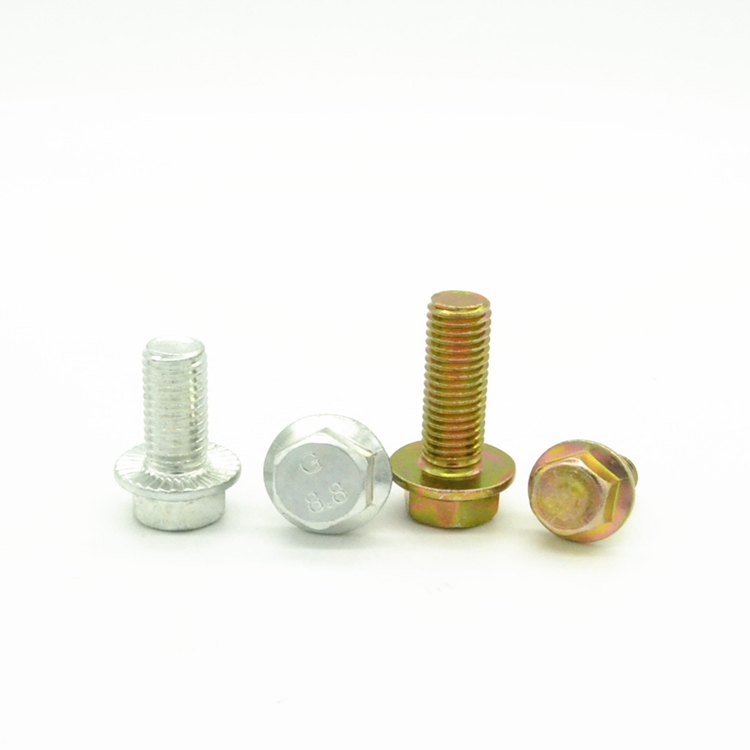wooden nuts and bolts factories
Dec . 03, 2024 17:45 Back to list
wooden nuts and bolts factories
The Rise of Wooden Nuts and Bolts Factories A Sustainable Future
In recent years, sustainability has become a critical concern in manufacturing, pushing industries to adopt greener practices. Among the most promising developments in this field is the rise of wooden nuts and bolts factories. These facilities focus on producing fasteners from wood, offering an eco-friendly alternative to traditional metal options. This article explores the benefits of wooden fasteners, the processes involved in their manufacturing, and their potential impact on the environment and industry.
Wood has been a fundamental material for countless applications for centuries. However, the use of wood in fasteners is relatively new. Wooden nuts and bolts present a unique solution for various industries, including furniture manufacturing, construction, and even automotive applications. The primary appeal lies in wood's renewable nature, particularly when sourced from sustainably managed forests. Unlike metal, which requires extensive mining and processing, wooden fasteners can significantly reduce the carbon footprint associated with production.
The manufacturing process of wooden nuts and bolts is intriguing and begins with selecting the right type of wood. Hardwoods like oak, maple, and birch are often favored for their strength and durability. Once selected, the wood undergoes a careful milling process, where it is cut into specific shapes and sizes. Precision is key, as the components need to fit perfectly to ensure reliable connections.
Typically, wooden fasteners are designed with specific applications in mind. For instance, wooden bolts may have a larger diameter to provide adequate strength for heavy-load applications, while wooden nuts may be crafted to accommodate a smooth fit around the bolt. Manufacturers utilize advanced machinery to achieve the required tolerances, ensuring that the finished products meet industry standards. Additionally, many factories are now using eco-friendly adhesives and coatings to enhance the durability and weather resistance of their wooden fasteners.
wooden nuts and bolts factories

One of the most notable advantages of wooden nuts and bolts is their reduced environmental impact compared to metal counterparts. The production of metal fasteners is often associated with significant energy consumption and greenhouse gas emissions. In contrast, wooden fasteners can be produced with minimal energy input, particularly when local wood sources are used. Furthermore, the biodegradability of wood means that, at the end of their lifecycle, these fasteners won’t contribute to landfill waste as metal does.
The re-emergence of wooden fasteners also aligns with the growing consumer demand for sustainable products. Many consumers today prioritize eco-friendly options, pushing manufacturers to explore alternatives that minimize environmental harm. As a result, wooden nuts and bolts are becoming a popular choice among businesses looking to enhance their sustainable practices, ultimately leading to a more considerable shift toward responsible manufacturing.
Despite the benefits, challenges remain in the wider adoption of wooden nuts and bolts. The prevailing mindset in many industries favors metal fasteners due to their proven reliability and strength. Manufacturers are continually working to bridge the gap between perception and reality, demonstrating that wooden fasteners can offer comparable performance when designed appropriately. Education and outreach to industries that could benefit from these alternatives are crucial for driving acceptance and incorporation into standard practices.
In conclusion, wooden nuts and bolts factories represent a significant advancement in sustainable manufacturing. With their reduced environmental impact, innovative production methods, and growing consumer acceptance, wooden fasteners have the potential to revolutionize multiple industries. As we move towards a more sustainable future, embracing materials like wood in places previously dominated by metal could create enormous benefits for both the environment and society as a whole. The continued development and promotion of wooden fasteners may very well play a pivotal role in shaping the future of manufacturing.
Latest news
-
High-Quality Panel Stud Bolt Reliable Panel Stud Bolt Factory & Suppliers
NewsJul.08,2025
-
High-Precision Fine Thread Locknuts Manufacturer & Supplier Custom Solutions
NewsJul.08,2025
-
PH Imperial Stud Bolt – High Strength Fasteners from Leading Supplier & Factory
NewsJul.07,2025
-
High-Quality Allen Wrench Bolts Leading Factory, Company & Suppliers
NewsJul.07,2025
-
Wholesale Ball Stud Bolt - High Quality Supplier & Factory Price Reliable Wholesale Ball Stud Bolt Company
NewsJul.06,2025
-
High-Strength Alloy Bolts Manufacturer & Supplier Quality Alloy Fasteners Factory
NewsJul.06,2025
